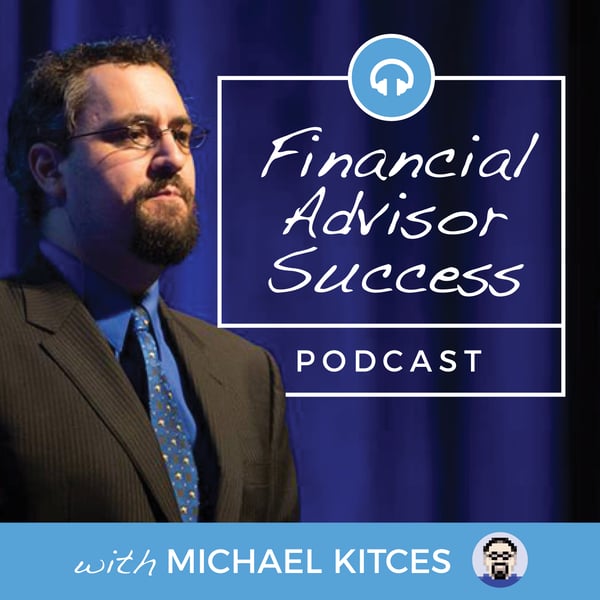Ep 454: Turning Abstract Behavioral Finance Research Into Practical Tools To Better Client Outcomes with Dr. Daniel Crosby
Financial Advisor Success
Michael Kitces
4.8 • 696 Ratings
🗓️ 9 September 2025
⏱️ 90 minutes
🧾️ Download transcript
Summary
Behavioral finance is often viewed as abstract but it can be a powerful, practical tool for helping clients make better decisions and build lives that align with what matters most. This episode explores how applying behavioral insights and positive psychology can deepen client relationships and drive more meaningful planning conversations.
Dr. Daniel Crosby is the Chief Behavioral Officer at Orion, a technology platform serving financial advisors.
Listen in as Daniel shares how he's turned complex behavioral concepts into usable advisor tools, including a "money personality" framework and a flourishing goals assessment. We talk about why understanding where clients fall on five key money dimensions - like communication style or spending vs. saving - can help reduce judgment and improve client outcomes, and how identifying gaps between what clients value and how they feel they're doing in life can spark more relevant financial goals. Daniel also reflects on why advisors must examine their own money beliefs and blind spots, and how practicing nonjudgmental listening may be the most powerful behavioral tool of all.
For show notes and more visit: https://www.kitces.com/454
Transcript
Click on a timestamp to play from that location
| 0:00.0 | Welcome to the Financial Advisor Success Podcast, where you go behind the scenes with |
| 0:07.1 | financial planner, speaker, and consultant Michael Kitsis to hear stories of how leading |
| 0:12.4 | financial advisors navigated the inevitable challenges that arise on the path to success |
| 0:17.4 | and get insight from leading industry consultants about how to break through to the |
| 0:21.9 | next level in your advisory business. And now here's your host, Michael Kitsis. |
| 0:28.0 | Welcome, everyone. Welcome to the 454th episode of the Financial Advisor Success Podcast. |
| 0:34.0 | My guest on today's podcast is Dr. Daniel Crosby. Daniel is the chief behavioral officer of |
| 0:38.8 | Orion, a technology platform serving financial advisors. What's unique about Daniel, though, |
| 0:43.7 | is how he has turned abstract behavioral finance concepts into practical tools advisors can use |
| 0:48.7 | to understand their client's relationships with money and to help them set better goals. |
| 0:53.1 | In this episode, we talk in depth about |
| 0:54.9 | how Daniel helped develop a tool to analyze where individuals fall across five dimensions of one's |
| 1:00.5 | money personality, spending today versus saving directness of communication about money, worry about |
| 1:05.3 | money, an individualistic versus collectivistic approach toward money and the importance placed on money |
| 1:10.4 | and wealth. |
| 1:11.7 | Why Daniel finds that there is a tendency for those on one end of the spectrum on a particular |
| 1:16.5 | dimension to judge those on the other end. For example, a spouse who tends to be a saver |
| 1:20.8 | might judge a more spendthrift spouse for not saving for the future, while the latter might think |
| 1:25.1 | the saver's habits are limiting their enjoyment of today. And why Daniel ultimately finds that neither end of each dimension is necessarily superior |
| 1:32.2 | and how advisors can help clients identify potential blind spots if they fall at one extreme or the |
| 1:37.3 | other. We also talk about how Daniel has helped develop a tool that allows advisors to incorporate |
| 1:42.4 | positive psychology principles into the planning process |
... |
Please login to see the full transcript.
Disclaimer: The podcast and artwork embedded on this page are from Michael Kitces, and are the property of its owner and not affiliated with or endorsed by Tapesearch.
Generated transcripts are the property of Michael Kitces and are distributed freely under the Fair Use doctrine. Transcripts generated by Tapesearch are not guaranteed to be accurate.
Copyright © Tapesearch 2026.

